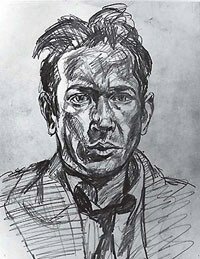We’re marking World Poetry Day by exploring the links between politics and poetry. James Weinberg has discussed with English teacher Sarah Cottingham discusses how she approaches political poetry:
Poetry is an excellent vehicle for discussing politics. Poems are the best words in the best order and students are naturally drawn to the repetition, rhyme and rhythm. In poetry, political ideas/opinions are distilled down to their most poignant and are therefore far more powerful and accessible to students.
One such example is a favourite poem of mine by e.e. cummings: ‘next to of course god america i’. This is a GCSE poem, which I decided to tackle with an enthusiastic year 7 class. As pre-reading activities we watched clips and read short transcripts of politicians’ speeches, so the students could note the use of cliche, hubris, metaphor etc and question what it all really meant. When they came to studying the poem they were able to unlock the big ideas behind cummings’ use of form, structure and language. It also taught students not to take what they read and hear at face value: not to be duped by empty rhetoric.
Take a look at our political poems from Ian McMillan and Helen Butler, and Matt Flinders’ blog “Shake your chains: Politics, poetry and protest”
Biography
James is a Research Associate at the Crick Centre working on the ‘personal side of politics’. Currently a doctoral research student, his ESRC-funded PhD focuses on the value orientations of national politicians in the UK; the research hopes to illuminate the psychological imperatives associated with the job of representation and the personal dynamics of MPs’ roles, behaviours and legislative decisions. James has already completed a pilot study with 48 UK MPs. Alongside his PhD James is currently leading on a new strand of research investigating the ways citizenship education can be reformed, both process and content, to tackle political apathy and reinvigorate democracy. He is a member of the Study of Parliament Group and sits on the committee of the Hertford Society. Previously James has worked in secondary education as an English teacher in London. He completed his Masters in Political Science at the University of Manchester and his BA in History at the University of Oxford.
Note: this article gives the views of the authors, and not the position of the Crick Centre, or the Understanding Politics blog series. To write for the Understanding Politics blog, email us at [email protected]





